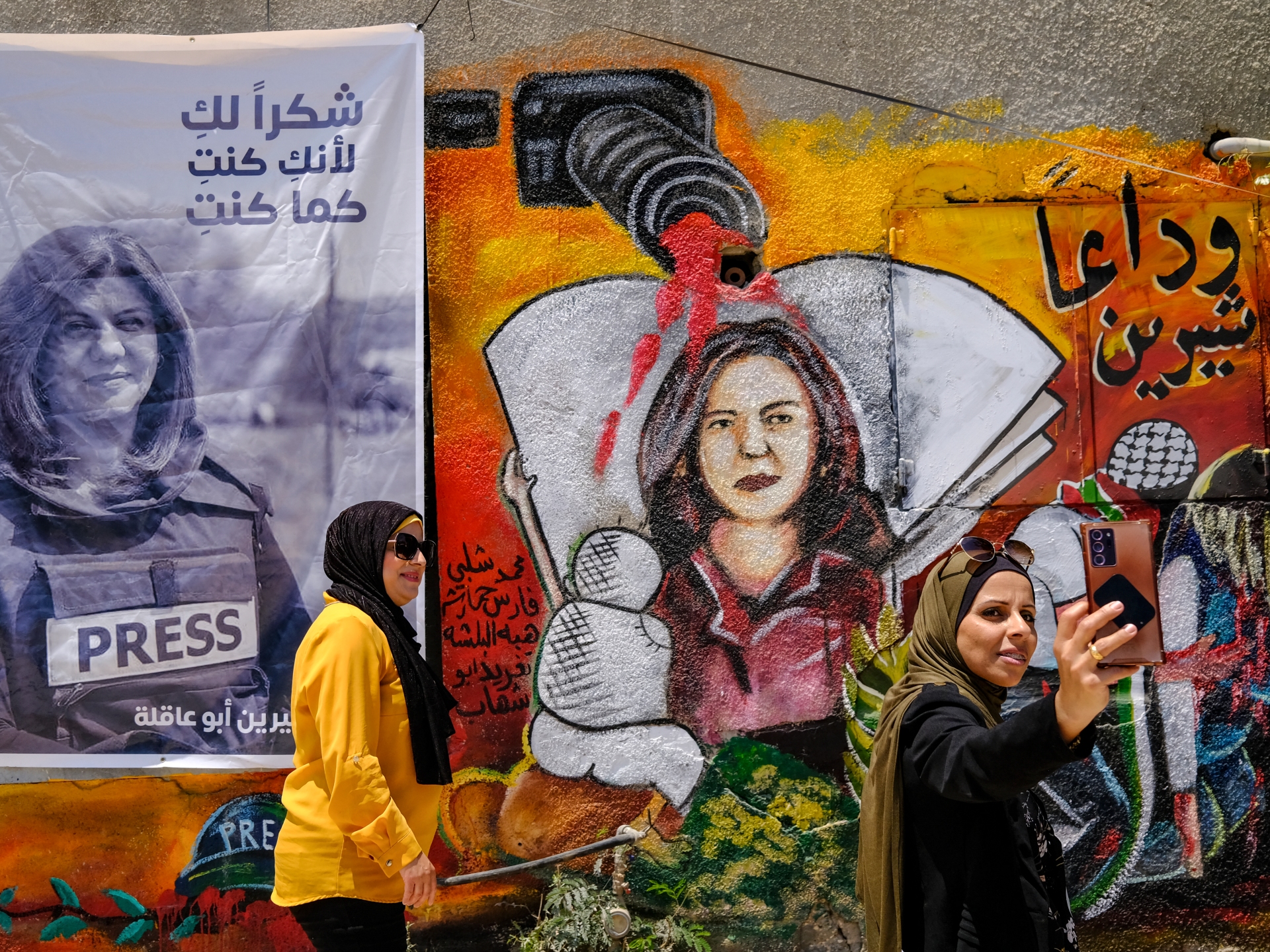The outlawing of Palestinian rights bodies and killing of Al Jazeera journalist Shireen Abu Akleh will be in focus during the 5-day hearings in Geneva.
A United Nations independent commission of inquiry has begun public hearings on the alleged human rights violations in the Palestinian territories, with the first day focusing on Israel’s outlawing of several Palestinian rights organisations last year.
The commission, established by the UN Human Rrights Council last year, plans five days of hearings beginning Monday, which it says will be impartial and examine the allegations of both Israeli and Palestinian authorities.
The hearings, which have been harshly criticised by Israel, will also address the killing of Al Jazeera journalist Shireen Abu Akleh, who was shot in the head by Israeli forces while on assignment in the occupied West Bank in May.
The UN rights office has said its findings suggest that Akleh was deliberately killed by Israeli forces while an Israeli investigation concluded she was likely to have been unintentionally shot by an Israeli soldier.
“In these proceedings, we are not drawing any conclusions or making any judgements,” lead investigator Navi Pillay, a former UN rights chief from South Africa, told the gathering via video link.
Shawan Jabarin, the head of legal-aid human rights group Al-Haq, told the three-member panel that Israel’s decision to outlaw Palestinian rights groups as “terrorist” organisations was “like an execution” designed to stop them from probing abuses.
He charged that the “terrorist” designation in October had come after a years-long smear campaign against his organisation, which included efforts to get backers to drop their support, as well as death threats against him and other colleagues.
“We will not stop. Yes, they can detain us, they can arrest us, they can put us in prisons, they can kill us… but they can’t change our beliefs… We will continue fighting against the culture and the policy of impunity,” he said.
Although not unprecedented, it is unusual for UN investigative teams to hold public hearings with witnesses.
But in this case, the investigators had determined it was important to be as transparent as possible as they conduct their work to mitigate accusations of bias.
Israel has called the hearings “sham trials”.
“Over the upcoming five days, the UN commission of inquiry targeting Israel intends to simultaneously play judge, jury, and executioner by holding so-called public hearings,” the Israeli mission in Geneva said in a statement on Monday.
“This commission of inquiry and the convening of these sham trials shame and undermine the Human Rights Council,” it said, insisting that “the Human Rights Council should not be used to convene kangaroo courts”.
Israel said the hearings were convened with little notice and pointed to an “anti-Israel” agenda.
The UN human rights office has previously dismissed allegations of bias and said Israel had not cooperated with the commission’s work.
The inquiry mandate
Neither the hearings nor the UN Human Rights Council has any legal enforcement. However, investigations launched by the council are sometimes used as evidence before national or international courts.
Besides Israel, its ally the United States has criticised the Human Rights Council for what it has described as a “chronic bias” against Israel. It quit the body over this in 2018 and only fully rejoined this year.
The three-member commission was created after the 11-day Israeli bombardment of Gaza in May last year killed 250 Palestinians. At least 13 people were killed in Israel in rocket attacks from Gaza.
The inquiry mandate includes alleged human rights abuses before and after the 2021 conflicts and seeks to investigate the root causes of the tensions.
